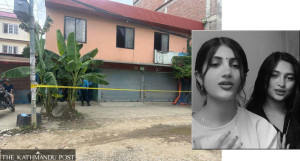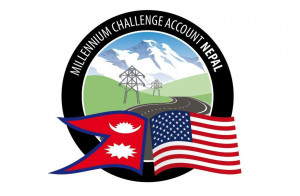National
Nepal government puts all tourist visas on hold and cancels all spring climbing expeditions
The visa suspension will begin March 14 and last until the end of April, depriving Nepal of millions in Everest climbing fees..jpg&w=900&height=601)
Sangam Prasain
The Nepal government, late Thursday night, decided to temporarily stop issuing on-arrival tourist visas to all countries and has put an end to all spring mountaineering expeditions, including Everest ascents.
The decision comes a day after the World Health Organization declared the Covid-19 outbreak a pandemic and urged countries to take precautionary measures.
“The visa suspension, which excludes diplomatic and official visas, will come into effect on March 14 and last until April 30,” a government official told the Post on condition of anonymity.
A high-level coordination committee led by Deputy Prime Minister and Defence Minister Ishwar Pokhrel took the decision to this effect on Thursday.
The meeting also decided to restrict traveller movement to and from India via land routes and adhere to strict quarantine measures at the border. No decision has been made to close down schools and colleges.
“In case of emergency, any foreigners wishing to come to Nepal will need to submit a medical certificate declaring that they are free of the coronavirus while applying at Nepal’s consulate in their respective countries,” the official said. “The government has also decided not to issue visas for tourists entering Nepal via land routes.”
According to the official, all spring expeditions, including Everest, have been cancelled.
The decision effectively puts an end to the lucrative spring climbing season, which is when most Everest attempts take place.
Mountaineers generally apply for Everest permits from the end of March. The spring season begins in early April as hordes of climbers start trekking for the Everest region. From hotels to restaurants, guides to potters, and airlines to helicopters, all eagerly await the spring climbing season as it generates much-needed income and jobs for the mountainous region.
The government alone earns around $4 million by issuing Everest climbing permits every year. The two-week summit window normally begins in the second week of May. Millions of dollars in income are expected to be wiped out from the market if the Spring ascents are called off.
In the wake of the global coronavirus outbreak, China has already cancelled all Everest expeditions from the Tibetan side.
The China Tibet Mountaineering Association, the body that issues climbing permits, notified expeditions on Wednesday that all Everest ascents from the northern side had been cancelled due to the ongoing coronavirus outbreak.
Earlier on Thursday, expedition operators told the Post that they were looking at an unusual situation.
"Cancellation of this year’s spring Everest expedition will mean a big blow to expedition operators," said Mingma Sherpa, managing director of Seven Summit Treks.
Seven Summit Treks, the largest expedition operator in Nepal, said that 60 climbers have already registered with them to climb Everest. But on Thursday, six climbers cancelled their plans.
Meera Acharya, director at the Tourism Department which issues climbing permits, said that they had issued permits for five climbers for different mountains as of Thursday, but no one has applied for Everest as of now.
Countries across the world are stepping up measures and revising travel advisories to control the virus spread.
The United States has suspended all travel from Europe to the country for 30 days and India is temporarily suspending almost all travel visas starting Friday as part of its efforts to contain the Covid-19 pandemic. India’s ban will be applicable until April 15.
Following China’s announcement, aspiring mountaineers from around the world were eagerly awaiting the Nepal government’s response.
In the last few years, it has mostly been Indians who’ve sought Everest climbing permits, followed by Chinese, Americans and the British. With China still battling Covid-19 and India reporting more and more cases by the day, things were not looking good for Nepal’s mountaineering season, said Rishi Bhandari, managing director of Satori Adventures.
Bhandari said that his company had cancelled seven expeditions on the Chinese side following Wednesday’s notification while seven others have registered with them to climb Everest from the Nepal side.
Last year, the department had issued permits for 1,024 climbers, including 382 foreigners. Among them, 644 climbers reached the top.




 24.33°C Kathmandu
24.33°C Kathmandu

















